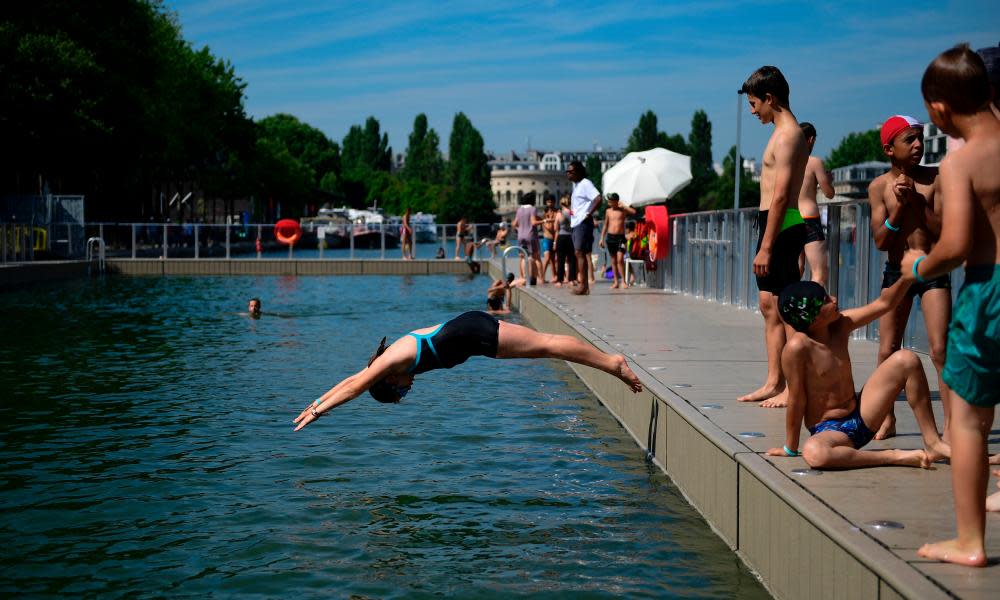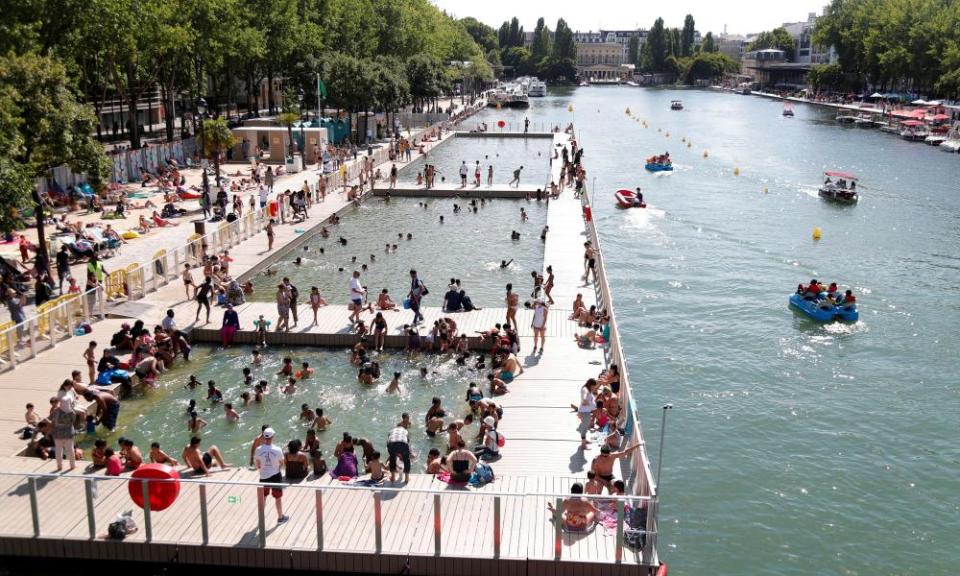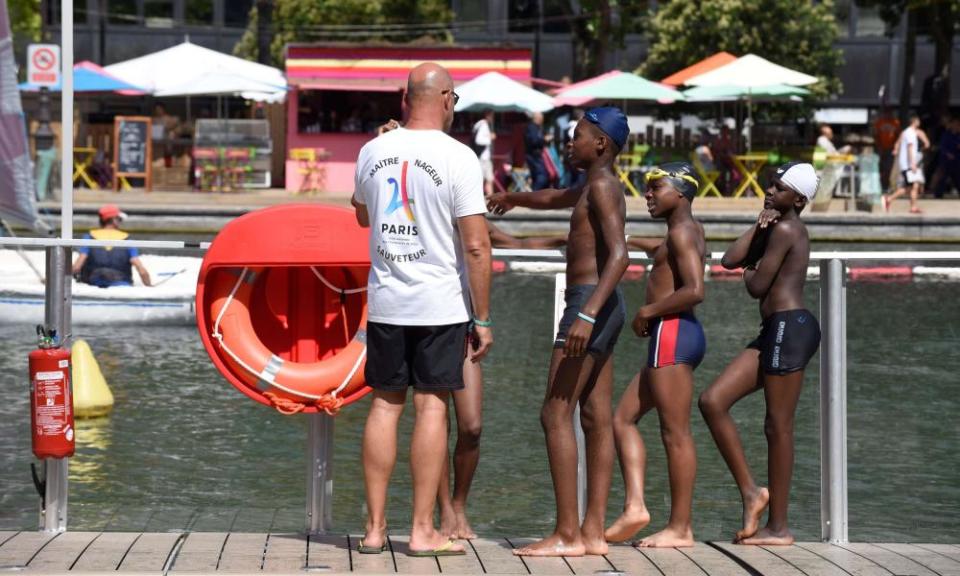Paris plunge: daily queues after city opens cleaned-up canal to swimmers

Standing in his swimming trunks, Gilles looked up at the modern grey apartment buildings and trees that lined the Paris canal. He took a deep breath, then dived into the dark mass of water that had been officially banned to swimmers for decades.
“Bliss,” he said after doing 500m of front crawl, occasionally brushing past bits of green algae in the new temporary swimming zone at La Villette canal basin, where Parisians can take their first legal dip in a city waterway for a century.
“It’s symbolic,” said the 45-year-old film director, drying off. “It shows a future is possible where we can reverse pollution, where we can make things cleaner and reclaim nature. I hate the smell of bleach and chlorine in public pools. This open-air water is cloudy and you can’t see the bottom, but it makes me feel secure. I feel like I’m taking possession of nature again.”
After decades in which casual bathing in Paris’s river and canals has been banned for a variety of reasons, including fears of bacteria and sewage pollution, authorities are moving to give swimmers more access to the murky waters that were once off limits.
I feel like I’m taking possession of nature again
Gilles, swimmer
The temporary floating structure that has opened at La Villette as part of the summer festival, Paris Plages, allows swimmers to plunge into the water of the Canal de l’Ourcq free of charge, with lifeguards standing by. Parisians are so keen to try it that huge queues form each morning, and it has had to close by mid-afternoon on some days after reaching its daily quota of 1,000 swimmers.

The next – more difficult – challenge for Paris city hall is to bring swimmers back to the capital’s bigger and more famous stretch of water, the Seine. If Paris wins its bid to host the 2024 Olympics, one of the benefits being promised to locals is that the river will be made officially swimmable. “Thanks to the Olympic Games we’ll be able to see to it that the water in the Seine is clean water,” the Paris mayor, Anne Hidalgo, vowed this month.
Taking a dip in the Seine and other city waters has been banned since 1923, because of currents, river traffic and water quality. In 1988, Jacques Chirac, the mayor of Paris at the time, promised to make the river safe for swimmers and said he would proudly swim in it himself. It never happened. Although the water in 1870 was more than 400 times more polluted than today, the issues over purity, linked in part to human and agricultural residues, are still being addressed.
It changes the city from a place of work to a place of leisure
Françoise, swimmer
A triathlon open water swim was held in the Seine in 2011, but a competition scheduled for 2012 was abandoned amid health concerns. Authorities now say significant progress has been made, with some species of fish absent for decades now returning and the river clean enough to swim in on some days of the year.
Jean-François Martins, Paris’s deputy mayor in charge of sport and tourism, said climate change meant authorities had to look at natural ways for people in the city to cool down in heatwaves, including swimming in waterways.
He said of the Seine: “Not all of it would be swimmable because of strong currents in some areas, and also because the Seine has other uses, namely the river transport of goods and passengers. So we would look to find certain places where the current is weak.”
Because of busy passenger boat traffic, there is unlikely to be swimming below the Eiffel Tower or Musée d’Orsay, but possible sites are under consideration near the Trocadéro or the François-Mitterrand library in the east.

If open swimming has recently become a big issue in Paris, it is in part because of the late-night illegal swims organised over the past five years by a small collective of urbanists called the Laboratory of Experimental Urban Swimming, who seek to highlight how Paris waterways should be reclaimed.
“One of the biggest things we changed was people’s view of the city’s water,” said Pierre Mallet, 26, one of the group’s founders. “When we started, we would always get a reaction from onlookers. At the beginning, it was mainly mockery, disgust or laughter. Then people started to want to join in.”
He said that crucially, open swimming was a way of making people take better care of the water. In the past few years, illegal swimming at La Villette had become so common on hot days that authorities started to turn a blind eye. “You still see swimmers jumping off the footbridge or swimming further down the canal,” said a lifeguard at the new official swimming spot.
Françoise, a retired teacher, was sitting in a deckchair reading her book after her now daily swim in La Villette pool. “It’s just so nice to swim in the open and feel the breeze,” the 68-year-old said. “It changes the city from a place of work to a place of leisure.”
Follow Guardian Cities on Twitter and Facebook to join the discussion, and explore our archive here

 Yahoo News
Yahoo News 
